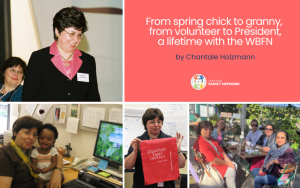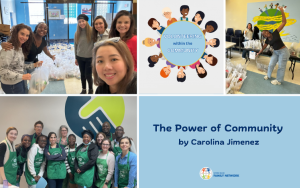
You are invited to our next 50th Anniversary event, Part 2 of the ‘Nourishing Global Families’ series, offered to staff and spouses by the Family Network and Staff Association. The second webinar titled Education Advocacy For Children and Families Navigating a Global Lifestyle, will help you understand how best to support your child’s educational needs while navigating a new country.
Transitioning between countries and navigating the education system can be a challenge. Understanding how to best support your child as they transition to a new school or country can empower families to make choices that will facilitate continuity of services and mitigate challenge and struggle.
Education Advocacy For Children and Families Navigating a Global Lifestyle was held on Thursday, December 8, 2022
Please find below the presentation and recording from our session
to access the presentation click here
to view a recording of our session click here
other resources:
https://www.wbfn.org/article/wbfn-disabilities-program-frequently-asked-questions
https://www.wbfn.org/event/virtual-seminar-self-care-parents-special-needs-kids
https://www.youtube.com/watch?v=vx_R_Sh_k7k
Addtional Resources:
a checklist of documents to travel with and Advocacy considerations
MindPrint letter to inform parents
About Our Speaker:
Dr. Stephanie Sexton, PsyD, MSpEd, Education Consultant
Stephanie Sexton is an education consultant with over 15 years of experience in education in US public schools as well as international schools in China, Brazil, and South Africa. She focuses on understanding the challenges of meeting unique learning, transition, and school placement needs both from a professional and parent perspective.
Throughout her career, she has worked with families to manage the interconnectedness of mental health and education. Making every attempt to understand the whole child and how their struggle may manifest through schoolwork or behavior can help to create the most effective intervention to support core needs which are sometimes not clearly evident.






